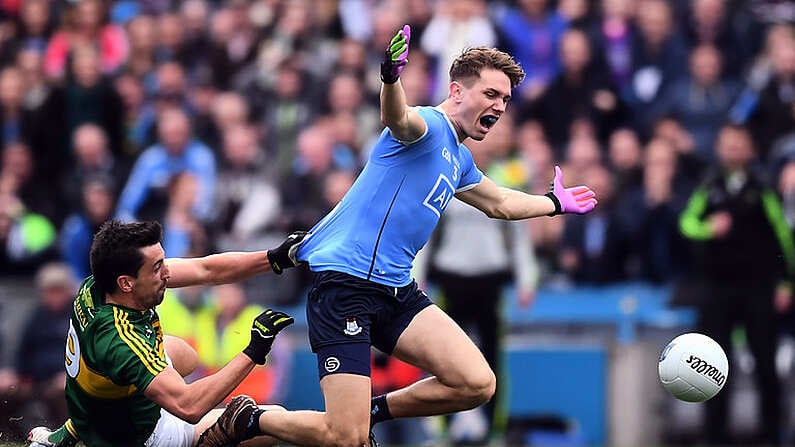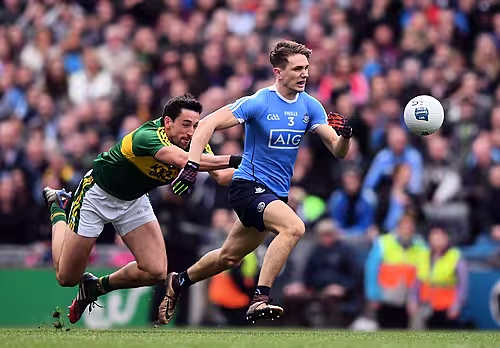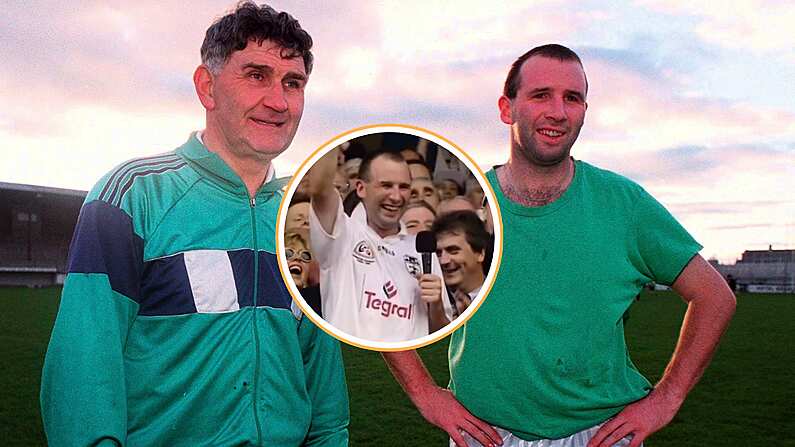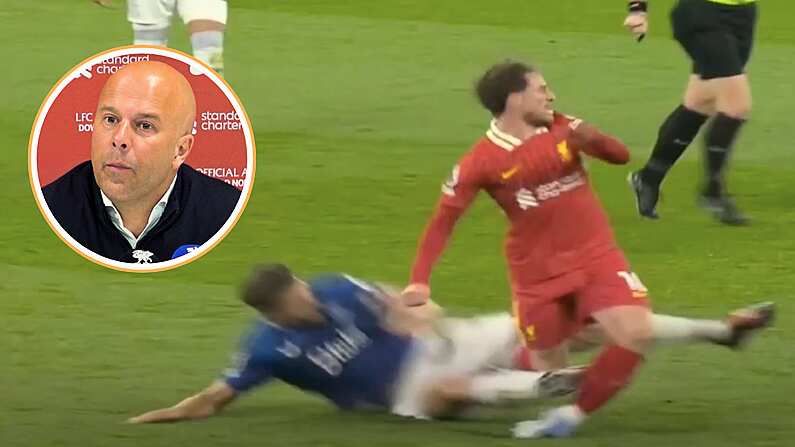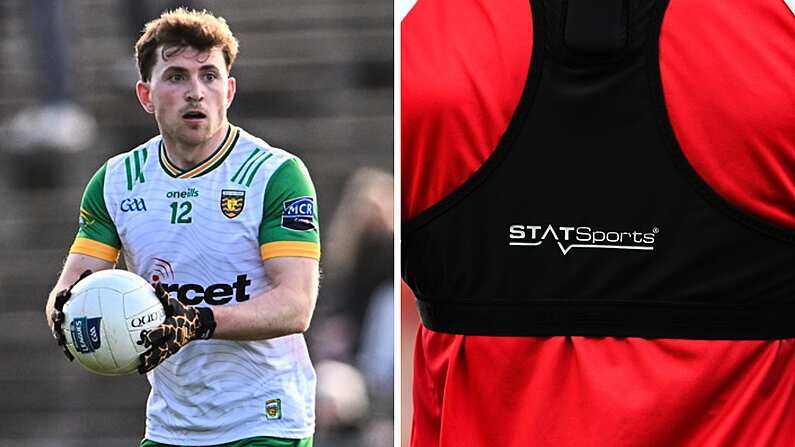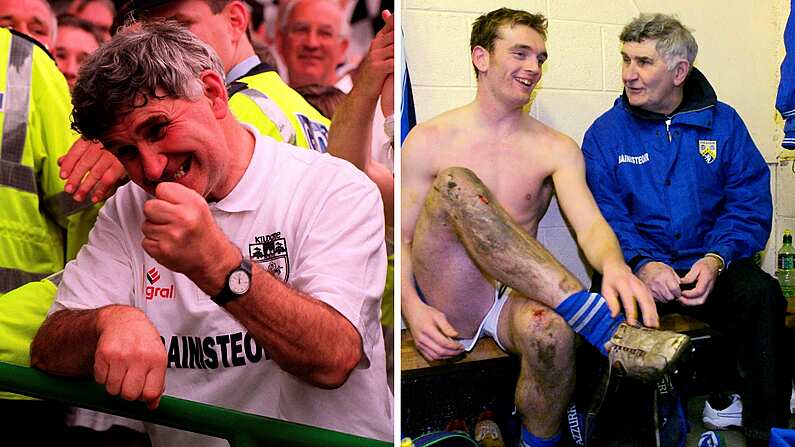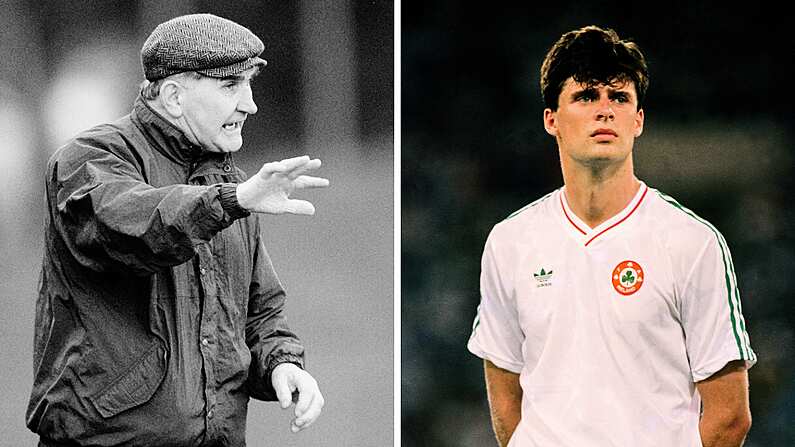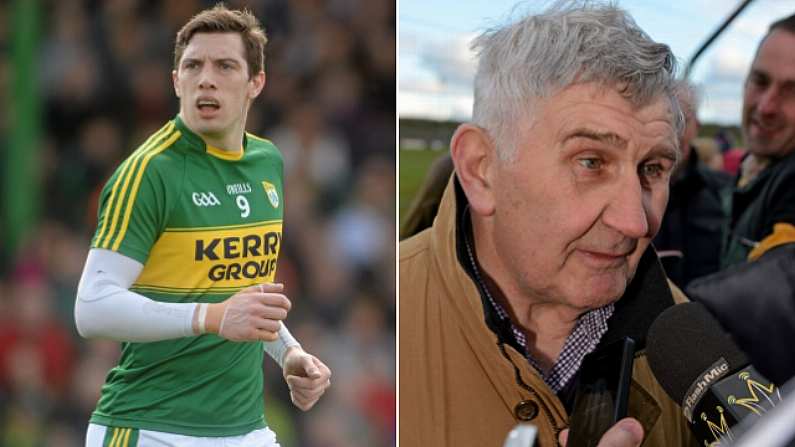For years, GAA Congress had been seen as a bastion of democracy in the sense that hundreds of people huddled in a room, debated the merits or otherwise of a number of proposals, all in prodigious example of how to achieve nothing.
In the last couple of years, however, Congress has fallen into a frenzy of productivity: the Super 8 became reality this year, following on the heels of other revolutions, the most notable being the Black Card. Hell, this year they've even reduced the majority needed to pass a decision through Congress.
With the latter, we find ourselves in the elusive territory of something rushed through Congress. The card has its merits: anything that can eliminate ugly, cynical fouling from the sport is to be encouraged. Unfortunately, the rule hasn't really achieved this.
Yesterday's league final is the perfect illustration of the rule's limitations. In many ways, it worked: Jonathan Lyne was given a black card for his cynical drag down on Diarmuid Connolly as he galloped toward goal. Dean Rock easily pointed the resulting free.
Connolly then picked up a black card for a mindless pull back on Peter Crowley. One of the most frustrating aspects of the rule is that it deprives games of their best players: notably Lee Keegan in last year's All-Ireland final, and Connolly yesterday. That said, Connolly should not be excused: he knows the rule, and his grappling with Crowley was utterly pointless.
The frustrations with the rule were evident in the second-half. Brian Fenton was given a yellow card for the quintessential black card offence: a body-check. The referee instead brandished a yellow, and waved a finger across the pitch to indicate he had been booked for persistent fouling.
While that level of inconsistency from referees is natural, the real frustration with the card came in stoppage time.
Kerry were clinging on, as Dublin turned the screw with ominous intent. Panic was definitely setting in among some: goalkeeper Brendan Kealy inexplicably threw the ball away following a goal-preventing save.
And then, the great flaw of the black card was exploited and exposed.
With Michael Fitzsimons cantering through midfield, in search of a late, late equalising point, Anthony Maher hauled him down in egregious, caricature fashion.
It was the ultimate example of cynical play, and Maher was rightly shown a black card for his transgression. Yet it wasn't punished adequately, as it reduced Dublin's chance of scoring: Rock hit the free against the upright, and Kerry survived.
The referee punished Maher correctly, but the incident proved that the Black Card is not effective enough in curbing cynical play.
The aim of the fouls punished by the Back Card is to prevent the opponent from scoring, so therefore the punishment should correct that.
The sentiment of the Black Card is absolutely correct, but the punishment is nowhere near severe enough. Rather than it costing team's players, it should cost them scores. It would be far more effective had Dublin been awarded an easy free-kick from 21 metres, rather than Kerry losing a player for all less than thirty seconds of action.
See Also: Joe Brolly Indicates Interest In Running For President In Joe Brolly Fashion


